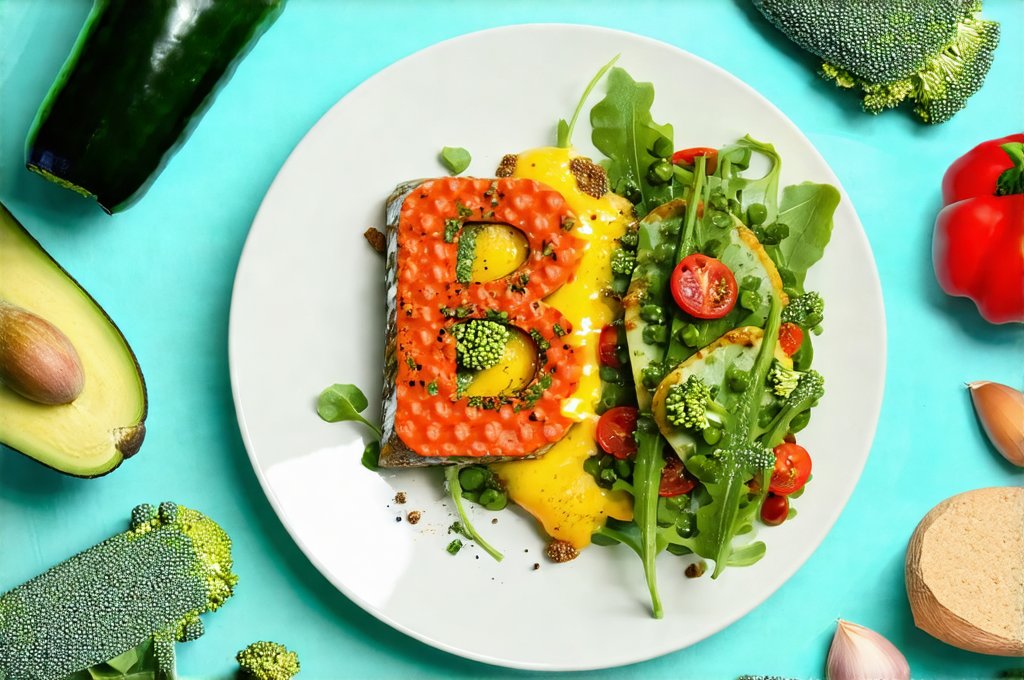Vitamin B12 is an essential nutrient vital for nerve function, DNA synthesis, and red blood cell formation. Unlike many other vitamins, our bodies don’t produce B12; we must obtain it from external sources – primarily food. For omnivores, this isn’t usually a concern as B12 is readily available in animal products like meat, poultry, fish, eggs, and dairy. However, for those following a vegan lifestyle which excludes all animal-derived ingredients, securing sufficient B12 intake requires conscious effort and understanding of the various options available. A deficiency can lead to serious health problems, making proactive management crucial.
The challenge for vegans isn’t that plant foods don’t contain B12 – it’s that they generally don’t provide a bioavailable form of the vitamin directly. Some plants might have trace amounts due to soil contamination or bacterial activity, but these are unreliable and insufficient. This means relying solely on naturally occurring sources within a vegan diet is risky. Successfully navigating B12 intake as a vegan involves understanding where reliable sources can be found, how much you need, and how to monitor your levels to ensure optimal health. It’s about making informed choices rather than avoiding the nutrient altogether.
Understanding B12 & Veganism
B12 exists in several forms, with cyanocobalamin and methylcobalamin being the most common in supplements. Cyanocobalamin is synthetic but efficiently absorbed by the body, converting to methylcobalamin once inside. Methylcobalamin is the active form immediately usable by our cells, often marketed as a more ‘natural’ option, though research doesn’t conclusively show it’s superior in absorption for most people. Absorption of B12 isn’t straightforward; it requires intrinsic factor, a protein produced in the stomach. As we age, intrinsic factor production can decline, potentially impacting B12 absorption even for omnivores. This is an important consideration when assessing supplementation strategies.
The misconception that some vegan foods inherently contain sufficient B12 often stems from inaccurate information about fermented products or algae. While spirulina and chlorella are touted as B12 sources, the form of B12 they contain is largely inactive pseudo-B12 which can actually interfere with accurate testing for deficiency and doesn’t offer nutritional benefit. Similarly, relying on unfortified nutritional yeast or tempeh isn’t enough; only specifically fortified versions guarantee a reliable dose. Fortification involves adding synthetic B12 to these foods during processing, making them viable options when chosen carefully.
It’s essential to remember that B12 deficiency develops gradually. Symptoms can initially be subtle and easily dismissed, ranging from fatigue and weakness to neurological issues like numbness or tingling in the extremities. Because of this slow onset, regular monitoring is vital for vegans, especially those who have been following a plant-based diet for an extended period. Don’t wait until you experience symptoms – preventative measures are far more effective than treating a deficiency after it’s developed.
Supplementation Strategies
Supplementing is the most reliable way to ensure adequate B12 intake on a vegan diet. There are several methods available, each with its own advantages and disadvantages:
- Oral Supplements: These are readily accessible and affordable. Look for cyanocobalamin or methylcobalamin supplements, ranging from daily low-dose options (around 25-100 mcg) to less frequent high-dose options (e.g., 1000 mcg weekly). High doses allow the body to absorb a sufficient amount even with reduced intrinsic factor production.
- Sublingual Supplements: These dissolve under the tongue, potentially bypassing some absorption issues related to the stomach and intestines. However, their effectiveness can vary depending on individual factors.
- Injections: Usually reserved for individuals with severe deficiencies or absorption problems, B12 injections offer direct delivery into the bloodstream, guaranteeing absorption. This requires a healthcare professional’s prescription and administration.
Choosing the right supplementation strategy depends on your personal circumstances. If you have concerns about malabsorption, consult with a doctor to determine the best approach. Consistency is key. Regularly taking a supplement, even in smaller doses, is more effective than sporadically taking large amounts.
Fortified Foods as Part of Your Diet
While supplementation should be the cornerstone of B12 intake for vegans, incorporating fortified foods can offer an additional boost and contribute to overall nutritional well-being. Look specifically for:
- Fortified Nutritional Yeast: This is a popular vegan cheese substitute often used in sauces or sprinkled on dishes. Ensure it’s explicitly labeled as ‘B12 fortified’ – not all brands are.
- Fortified Plant Milks: Many almond, soy, oat, and other plant milks are now fortified with B12, offering a convenient way to add it to your diet. Check the label for dosage information.
- Fortified Breakfast Cereals: Some vegan breakfast cereals include added B12, providing a quick and easy source in the morning.
It’s crucial not to rely solely on these foods without supplementing. Fortification levels can vary between brands and products, and it’s difficult to consistently obtain sufficient B12 from food alone. Think of fortified foods as a helpful addition, but always prioritize supplementation for reliable intake.
Monitoring Your B12 Levels
Regularly monitoring your B12 levels is essential to ensure you’re getting enough. There are several ways to do this:
- Blood Tests: The most common method involves a blood test measuring serum B12 levels. However, these tests aren’t always accurate as they can detect both active and inactive forms of B12.
- MMA (Methylmalonic Acid) Test: This is a more reliable indicator of B12 deficiency. Elevated MMA levels often signal a lack of functional B12 even when serum B12 appears normal.
- Holotranscobalamin (HoloTC) Test: This test measures the amount of vitamin B12 bound to transcobalamin, the protein that transports it in the bloodstream, offering another accurate assessment.
Discuss with your doctor which tests are appropriate for you and how often you should get tested. Frequency depends on your dietary habits, supplementation routine, and any existing health concerns. Don’t self-diagnose. Always consult a healthcare professional to interpret test results and adjust your B12 intake accordingly. Proactive monitoring empowers you to stay ahead of potential deficiencies and maintain optimal health on a vegan diet.




